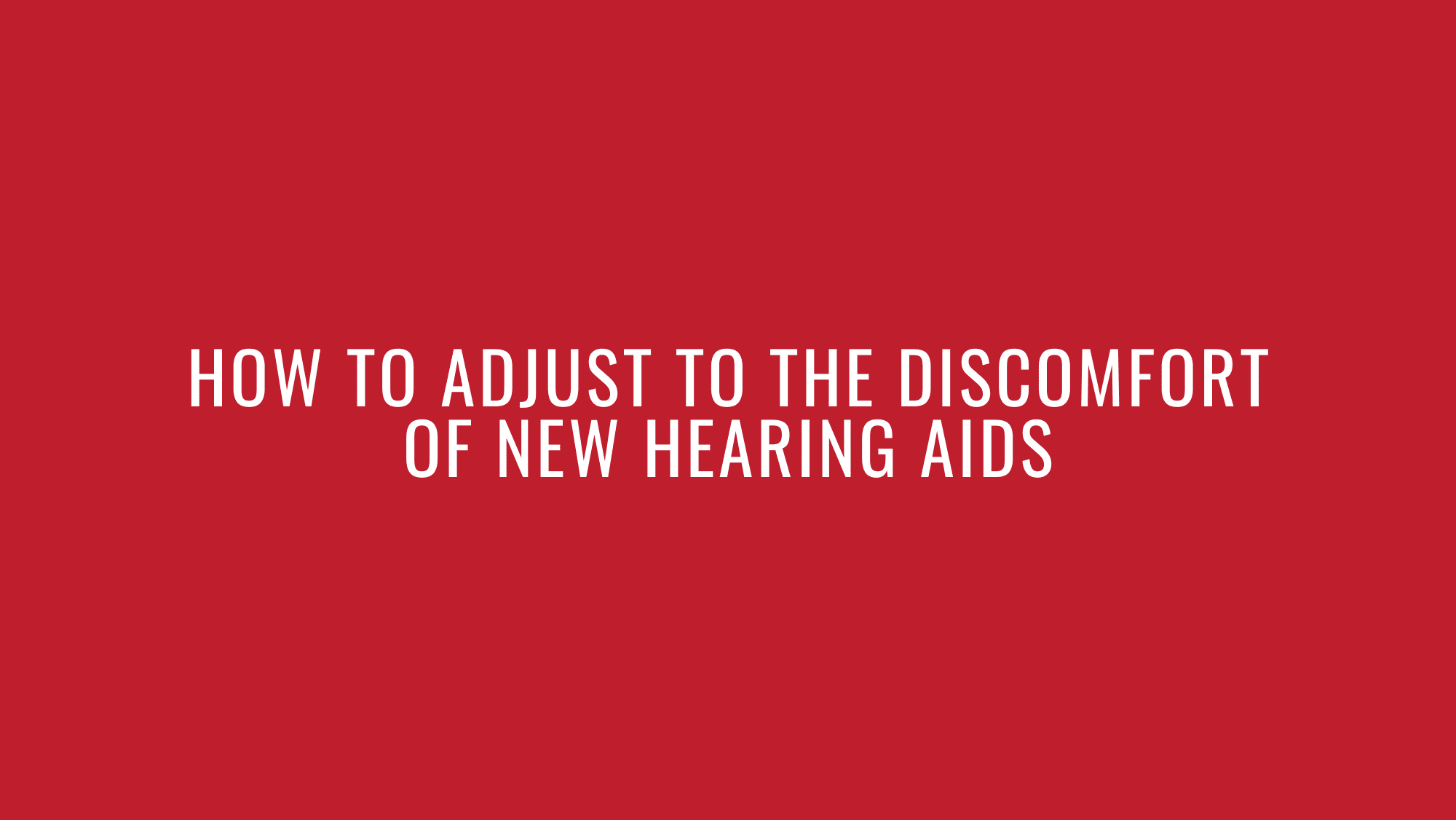If you’re one of the 50 million Americans who suffer from tinnitus, you know how frustrating it can be. Tinnitus can even be debilitating, affecting your ability to concentrate or relax, or worse, preventing you from being able to do your job or getting a good night’s sleep.
If you’ve had tinnitus for a while you may be wondering – does this condition ever go away? The answer is complicated. While there is no one-size-fits-all answer, there are treatments that may help lessen the impact of tinnitus on your life. Read on to learn more.
Do You Have Tinnitus? The Symptoms
Tinnitus, pronounced tin-I-tus or tinn-it-us, is when you hear sounds in one or both ears, even though there is no external noise present. You might be hearing ringing, buzzing, roaring, or clicking sounds even when everything around you is quiet. Most people describe it as a ringing sound, but pulsatile tinnitus, a rarer form, can sound like a whooshing noise.
The tinnitus can be mild, bothersome, or debilitating, and most people who only have a mild form of tinnitus – about 35 million of them – don’t seek treatment.
About 17 million people, however, do seek medical help because it is affecting their lives too negatively. For about 2 million of these, their tinnitus symptoms have led to stress, social isolation, anxiety, and depression.
Types of Tinnitus
Tinnitus can be subjective or objective – subjective when the sounds produced in the brain can only be heard by the patient, and objective when the sounds can also be heard by others.
- Subjective tinnitus is the most common type, affecting 99% of sufferers.
- Objective tinnitus sounds, affecting the remaining 1%, are most often produced by a person’s muscular movements or blood flow. Within this category is pulsatile tinnitus.
- Pulsatile tinnitus is when you can hear your blood flow pulsating near your ears.

Causes of Tinnitus
One of the theories behind tinnitus is that when a person has a hearing loss, the brain manufactures its own sound to replace what it can no longer receive from the auditory nerve and process.
About 90% of people develop tinnitus as a side-effect of hearing loss. Hearing loss often happens as we age – the parts of our auditory system slowly degenerate to where we might experience tinnitus.
But there are many things that can cause tinnitus in people with normal hearing, including:
- Exposure to loud noise: Noise-induced hearing loss is a very common cause of tinnitus. When you are exposed to loud sounds, such as working around loud machinery, it can damage the hair cells in your inner ear. These cells are responsible for sending sound signals to your brain.
- Earwax buildup: A block in the ear canal due to too much or impacted earwax.
- Changes to the bones in the middle ear: These bones can stiffen or thicken (otosclerosis), which can interfere with sound vibrations.
- Ménière’s disease: This is a disorder of the inner ear that can cause vertigo, hearing loss, and tinnitus.
- Ear, head, or neck trauma: Injury to your head or neck can cause damage to the auditory nerve that send sound signals to your brain or damage to the delicate structures in your middle ear and inner ear.
- Tension around the jaw, stress, or tight muscles.
- Ototoxic medications: Certain medications can damage hearing.
- Cardiovascular disease: Any disease of the circulatory system that affects the flow of blood to the brain, such as high blood pressure.
Diagnosing Tinnitus
If you’re experiencing the symptoms of tinnitus regularly, you’ll need to see an audiologist – such as Cornerstone – or an ear, nose, throat (ENT) doctor, as they are the only ones who specialize in treating hearing disorders such as tinnitus.
Tinnitus can be difficult to diagnose because there are many potential causes. Your audiologist will ask about your medical history and perform a physical exam of your ears. They will also order a hearing test because of the high correlation of hearing loss with tinnitus.
If they find the cause of your tinnitus to be a hearing loss, they will recommend the best treatment for that, such as a hearing aid.
If they deem your tinnitus is due to health conditions, they will refer you to an ENT doctor who specializes in disorders of the ears, nose, and throat and is an expert on the way the brain processes sound.
The ENT center might order tests, such as an MRI or CT scan or blood tests, to check your brain, neck, and spine for any underlying condition that could be causing your tinnitus, such as:
- cervical neck ligament damage, which could be fixed with neck surgery.
- arthritis, which could be treated and thus lessen the tinnitus.
- rare cases of blood vessel disorders, abnormal bone growth, tumor, or acoustic neuroma.
- other medical conditions.
How an Audiologist Can Treat Tinnitus
While tinnitus cannot be cured, there are many tools at an audiologist’s disposable that help a person manage their symptoms to where they are considerably reduced.
The ways of treating tinnitus are many, so each treatment plan can only be chosen based on the individual’s willingness to try our recommendations.
“Noting that not all patients believe or accept the psychological component of tinnitus, Christopher Spankovich, PhD, MPH, encourages providers to assess what best fits the needs of individual patients, taking into consideration their specific challenges, what the patient believes, and what he/she is likely to respond to, rather than focusing on a one-size-fits-all approach.” —”Podcast 16: Considering the Psychophysiological Elements of Tinnitus,” American Tinnitus Association.
Correcting Age-Related Hearing Loss Can Help
One treatment option is to address any underlying hearing loss. If you have hearing loss, correcting it with hearing devices can often help lessen the symptoms of tinnitus. In some cases, it might even go away completely.
Sound Therapy for Tinnitus
Another treatment option is sound therapy. This can mask tinnitus using various sounds which can help distract the brain and train it to ignore the tinnitus; for example, using a white noise machine while working or playing pink noise or the sound of ocean waves as you fall asleep.
Cognitive Behavioral Therapy (CBT)
CBT is a type of tinnitus retraining therapy that retrains the brain to approach the tinnitus cognitively and address it in a way that helps you manage the stress and anxiety in your reaction to it.
Constant noise in the head— such as ringing in the ears—rarely indicates a serious health problem but it certainly can be annoying. In addition to seeing an audiologist, here’s how to minimize it on your own and avoid things that worsen tinnitus.
Counseling and Support Groups:
Counseling and support groups can also be helpful, providing a place to talk about your experiences with tinnitus and how it’s impacting your life. It can also be a place to get support from others who are dealing with the same condition.
Avoid loud noises:
This is the most important thing you can do to prevent tinnitus or lessen its symptoms. Wear ear protection or protective headphones when you know you’ll be exposed to high volumes of noise, and avoid listening to loud music.
Limit alcohol consumption:
Alcohol can make tinnitus worse because it dilates the blood vessels and make the sounds you hear louder.
Quit smoking:
Smoking can worsen the symptoms because it constricts your blood vessels, restricting blood flow to your auditory nerve.
Manage stress:
Try relaxation techniques such as stretching, meditation, or deep breathing.
Exercise:
Exercise can help provide your auditory system with a healthy delivery of nutrient-rich blood.
What Should I Do if I Have Tinnitus?
If you think you might have tinnitus, it’s important to see an audiologist to rule out other possible causes of the symptoms and also to find relief, and Cornerstone Audiology – the winner of the Best of the West award for the last seven years – would love to help.
Schedule a tinnitus assessment in our Lubbock or Snyder hearing center. When we assess your tinnitus, we’ll look at your case history, hearing test results, and talk about how tinnitus is affecting your life.
Once a diagnosis is made, we’ll discuss treatment options that will help manage your tinnitus and help you cope with it so that you can get back to enjoying life fully again.
Some Common FAQs about Tinnitus
Q. What are the first signs of tinnitus?
Tinnitus is usually first noticed as a ringing noise in the ears, but it can also present as a hissing, clicking, or roaring sound.
Q. What is the main cause of tinnitus?
There are many potential causes of tinnitus, including earwax buildup, age-related hearing loss, and exposure to loud noise.
Q. Is having tinnitus serious?
Tinnitus is not usually a sign of a serious health condition, but it can be annoying and disruptive to your life.
Q. Will my tinnitus go away? Does tinnitus go away on its own?
In some cases, tinnitus will go away on its own. However, there are treatments that can help lessen the symptoms and avoid anything that might worsen tinnitus.
Q. How long can tinnitus last? Is tinnitus permanent?
Tinnitus can last for a few minutes or many years. In some cases, it might even go away completely.
Q. Can you cure tinnitus?
There is no cure for tinnitus, but there are treatments that can help lessen the symptoms. The best treatment for tinnitus depends on the underlying cause.
Q. Can I prevent tinnitus?
There is no sure way to prevent tinnitus, but you can reduce your risk by getting regular hearing checks, avoiding loud noise, and managing stress.
Q. Do hearing aids cure tinnitus?
Hearing aids cannot cure tinnitus, but they can help lessen the symptoms by amplifying sound and making it easier to hear. In some cases, they might even make the tinnitus less noticeable. Cochlear implants might also be an option for those with severe hearing loss.
Q. Are there clinical trials for tinnitus treatment?
Sometimes you can find a clinical trial for tinnitus, but keep in mind that you might be part of the placebo group and find no relief.
Q. Can I live a normal life with tinnitus?
Yes, you can still live a normal life with tinnitus. There are treatments that can help lessen the symptoms and make it easier to cope. In some cases, the condition might even go away on its own.





